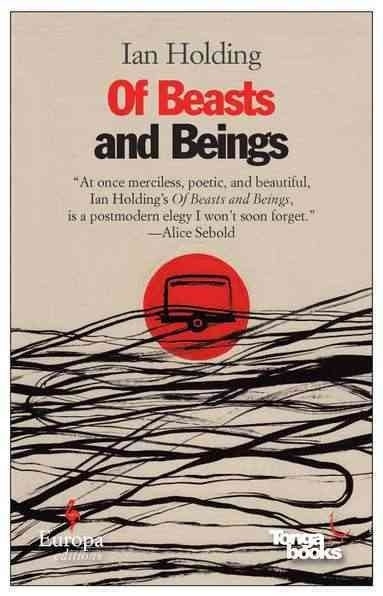“And the best shot at resolution is what the title seems to imply: that the excess of passion from which such senseless violence stems must be un-felt.” This is one reviewer’s take on the central conflict of Ian Holding’s previous novel, Unfeeling. A boy witnesses his family’s butchering at the hands of roving militiamen and must resolve the problem of how to live with it. He must unfeel his own rage and hate, just as the volatile political climate into which he has been born must unfeel the scars of colonial racism that have defined its terms.
By contrast, Holding’s second novel implores its characters to feel. The narrative of Of Beasts and Beings is broken into two parts: the first chronicles the journey of an unnamed kidnappee hauling a wheelbarrow across the African countryside; the second, a series of journal entries, details the daily tribulations of a Zimbabwean teacher as he dismisses his servants, sells his house, and prepares to leave his homeland. At first the two segments are disjointed, the connection between them unclear, but over time Holding succeeds not only in bridging that gulf but also in connecting both sides to us.
How? The two narratives entwine toward the end of the book, but the more-relevant bond involves an implicit series of questions: how does the Zimbabwean experience affect me as a human? To what extent am I participating in my own reality? And in what reality am I participating, if not my own? In the first segment Holding answers these questions experientially, through bristling imagery, staccato verse, a vital rhythm that quickens like a heartbeat; in turn, this supplies us with the emotional raw materials we need to comprehend the analytical approach he takes to the same questions in the second segment. As the novel’s surgically precise prose unfolds, its percussive cacophony erodes our guard as readers: we feel the tedium and brutality of the barrow-bearer’s circumstance, feel for him even as he fails to feel—or be, or contain, or become—anything. And we feel for the schoolteacher, who struggles to make sense of an environment capable of birthing such pain.
The schoolteacher’s attempts to confront this world are not always satisfactory; eventually he concludes that all Zimbabweans, black and white, are trudging through a kind of un-life, stunted and stifled by circumstances that stave intractable rifts between them.“In that disjointed state,” he says,...
You have reached your article limit
Sign up for a digital subscription and continue reading all new issues, plus our entire archives, for just $1.50/month.
Already a subscriber? Sign in





